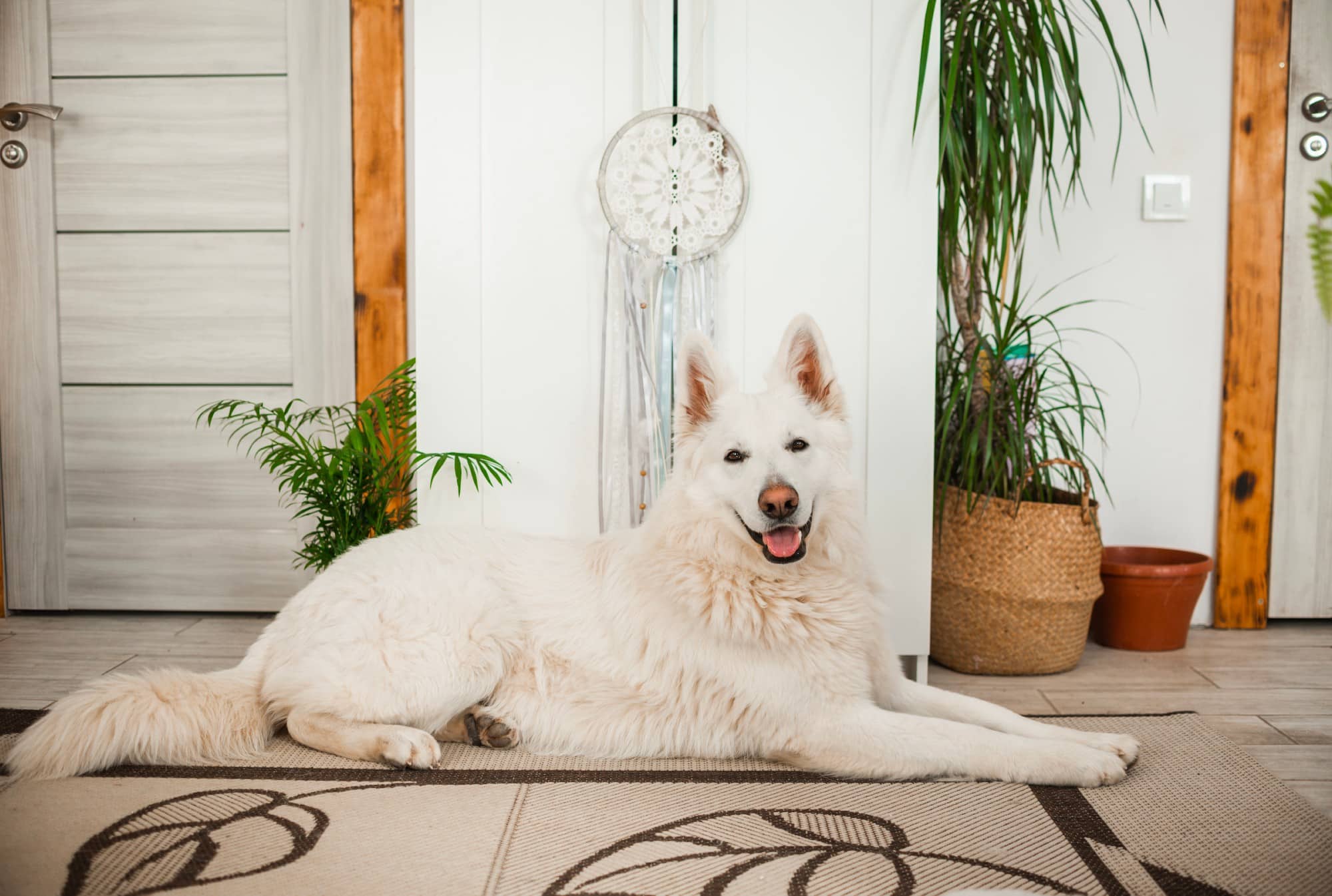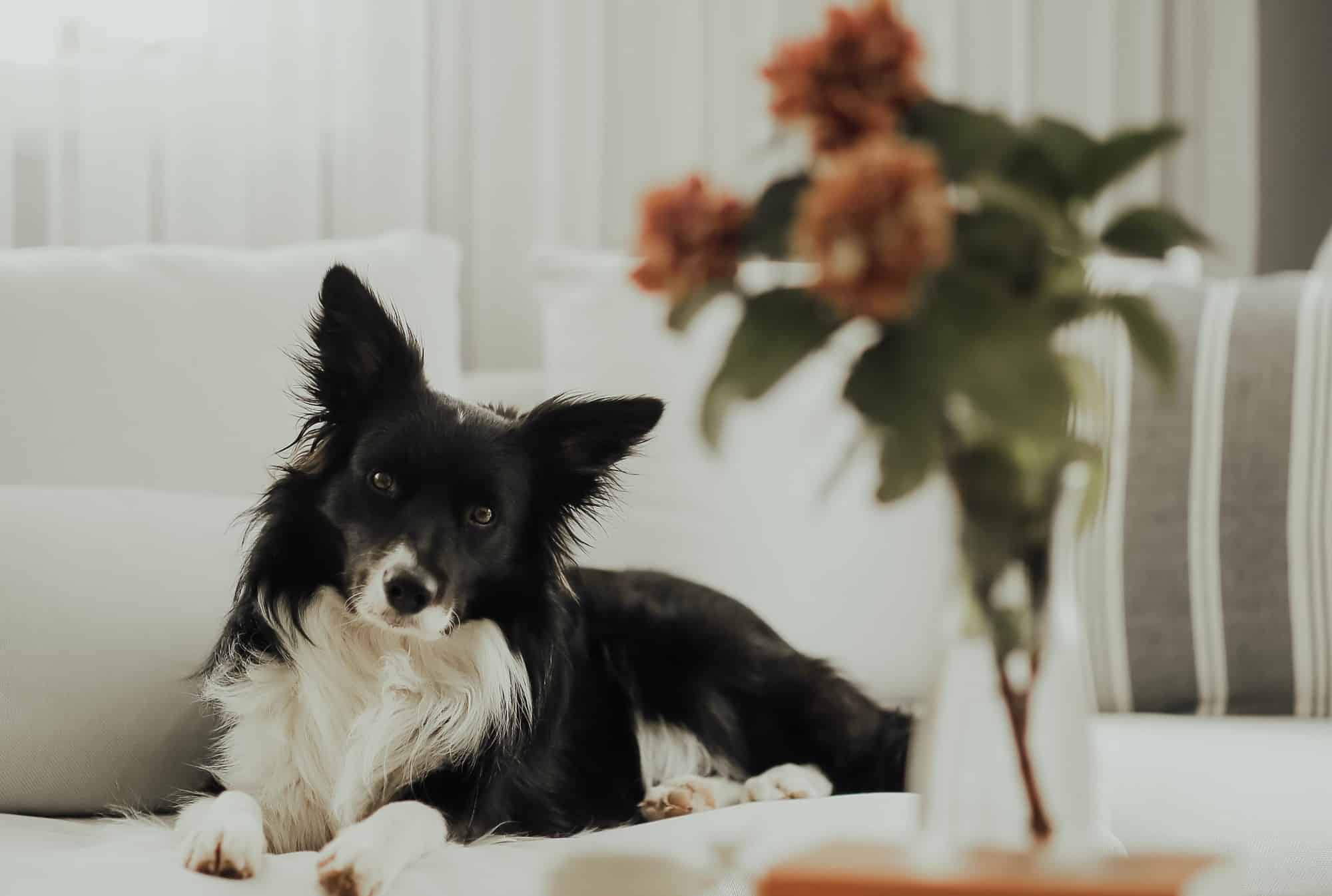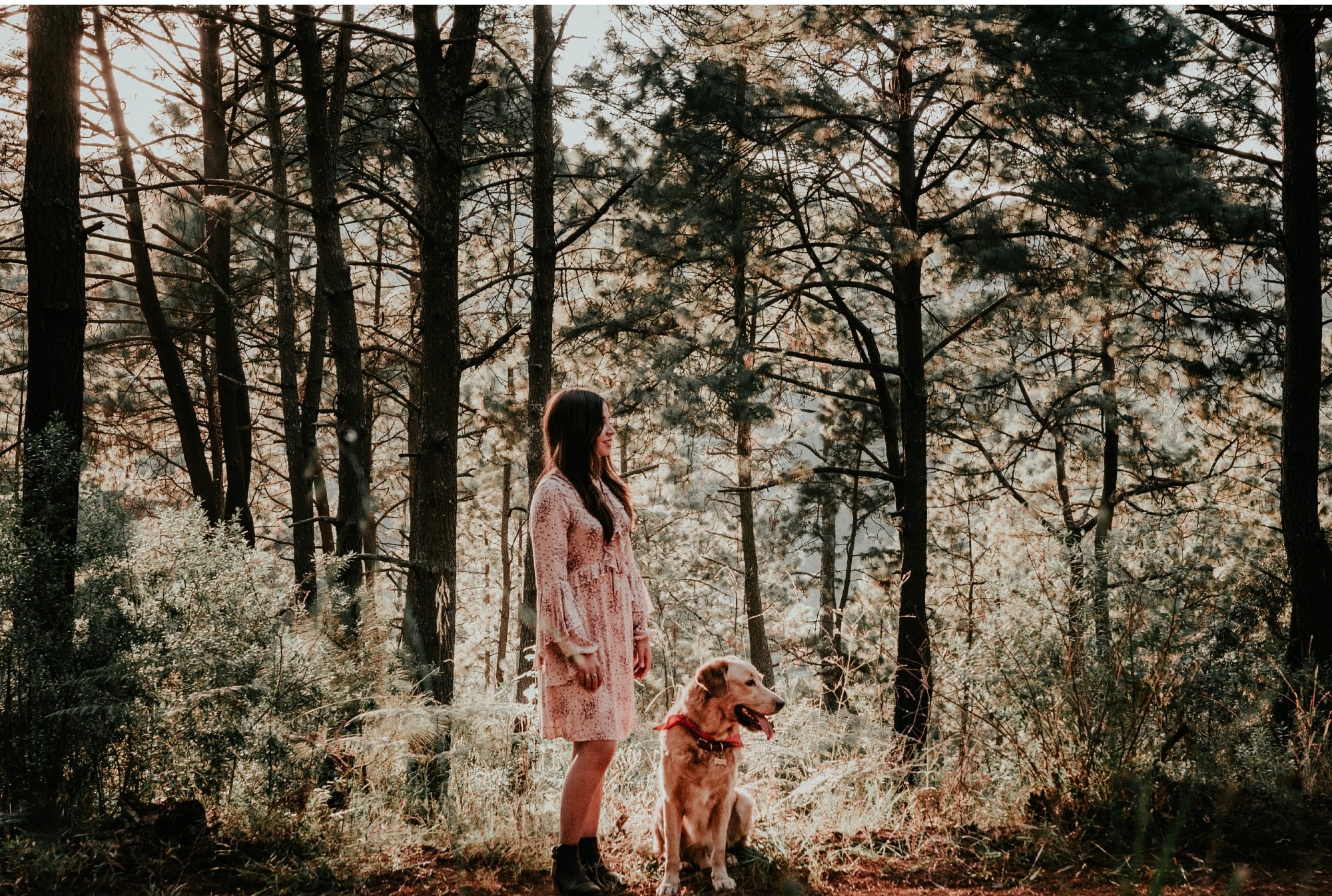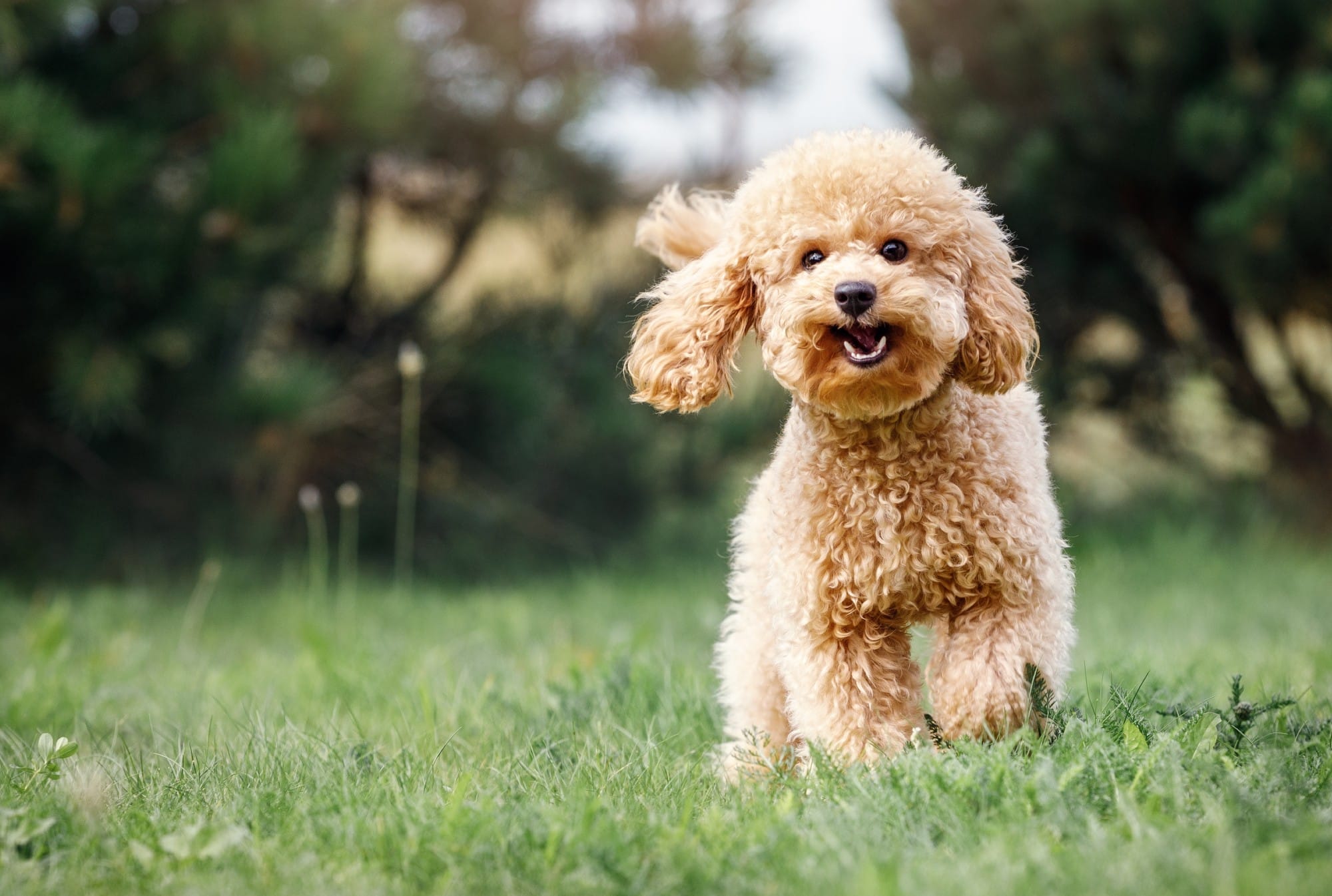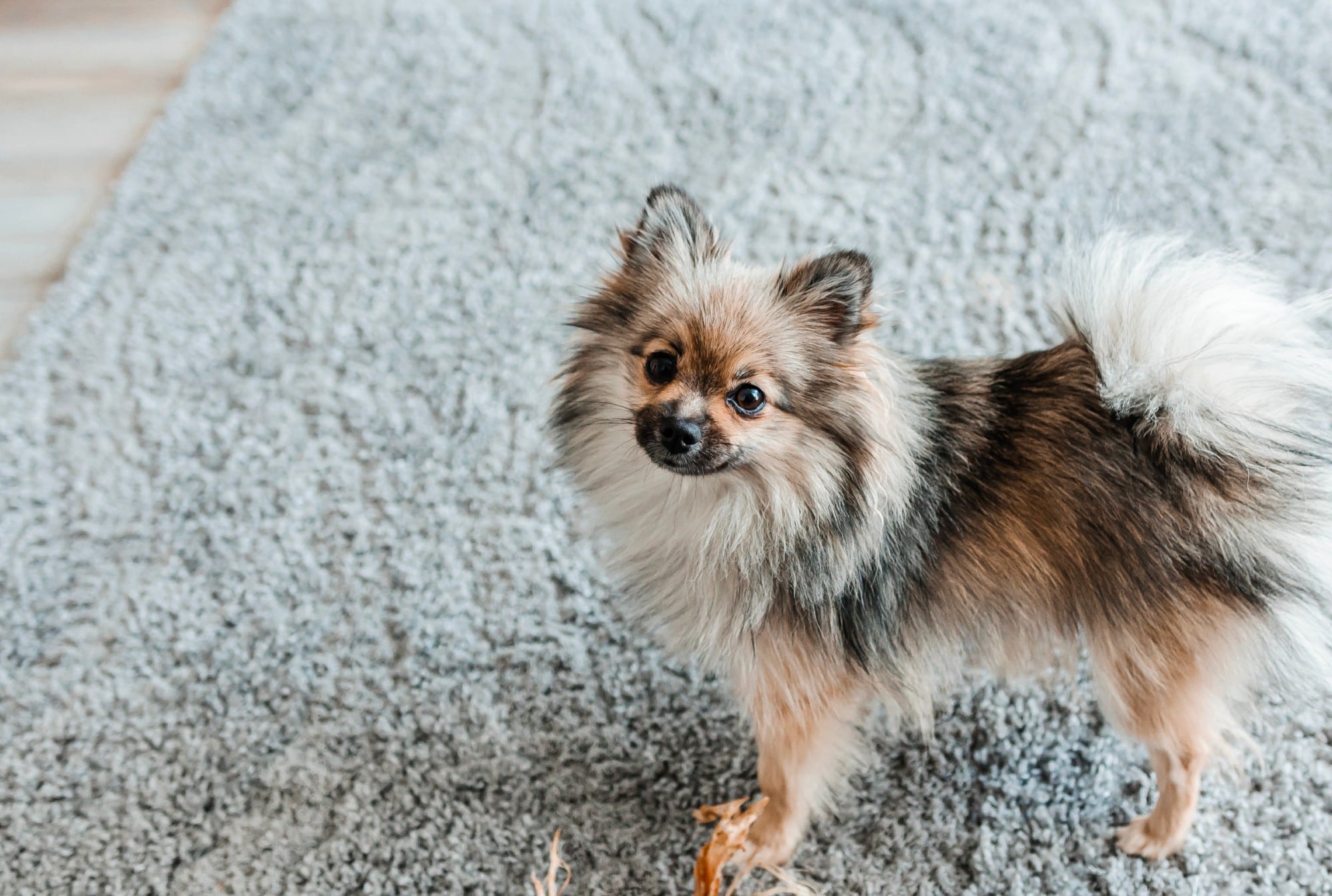Learning how to potty train your dog is one of the most important tasks necessary to establish a daily routine — and keep your home clean. While most dogs are housetrained during puppyhood, there are older dogs who may need to be taught due to circumstances beyond their control.
Regardless of what the popular proverb says, you can, in fact, teach an old dog new tricks — potty training included! Read on for expert tips on how you can potty train your senior dog.
Differences in Potty Training Older Dogs vs. Puppies
“Although many of the steps for potty training are similar no matter the age, there are a few differences to consider,” Joan Hunter Mayer, certified professional dog trainer and owner of The Inquisitive Canine, tells This Dog’s Life.
Frequency for taking a dog out to relieve themselves, she says, will differ in the housebreaking process when comparing puppies and adult dogs. “Puppies generally need to be taken out more often, versus adult dogs who can usually hold their bladder and bowels for a longer time.”
By default, adult dogs have a longer learning history compared to puppies, making it easier for them to “hold it.” However, you’ll still want to take your pooch outside frequently, between 3-5 times a day, or more, if needed.
Another difference, Mayer adds, is “marking,” or releasing small amounts of urine in multiple locations. She says this behavior is often mistaken for going to the bathroom. “Adult dogs mark territory much more often than puppies do,” she says. “And females mark too, not just males.”
In any case, it’s a good idea to consult with a veterinarian to see if your dog has medical or age-related health conditions that may affect his ability to be potty trained.
Related: The Beginner’s Guide to Potty Training Your Dog
5 Tips on How to Potty Train a Senior Dog
With lots of patience, praise, and consistency, your senior sweetheart will be on his way to learning an entirely new habit.
Mayer shares these vital tips on how to housetrain your older dog:
1. Decide where you want your dog to potty.
Mayer poses these questions to consider, “Will your dog have one regular spot to go? Or will there be multiple places he can go?” Decide on — and stick to — where your furry friend can go to the bathroom. That way, he knows exactly where to go every time.
2. Take your dog out regularly at specific times.
Dogs thrive with routines, which is why consistency is crucial when potty training.
Mayer suggests taking your senior dog out to go potty at these times to establish a schedule:
- When you wake up
- Right before bedtime
- Shortly after meals (sometimes, before meals depending on your dog’s individual needs)
- After spending time in a confined area (e.g. crate or car)
- Post-training session when given treats and water
- Before, during, or after a dog-related sport or activity
With constant repetition, your dog will learn when it’s an appropriate time to do his business.
3. Supervise and accompany your dog so you can cheer and reward at the right moment.
“Always reinforce your dog going potty in the desired place(s) — petting, praise, treats, play, freedom to run around on their own,” Mayer says. Positive reinforcement rewards your dog to let him know he’s done a good job and increases the likelihood of the behavior being repeated. It’s a win-win for you and your dog!
4. Use crates and other types of confinement.
Crate training is an effective way to potty train dogs of all ages. Crates help encourage control and establish routine, which makes them a great tool. Not to mention, your dog’s crate is his ultimate safe space where he can relax and sleep — without needing supervision. With proper crate training, your dog will learn when it’s time to go potty, ultimately preventing accidents since dogs naturally want to keep their space clean.
Mayer advises taking your senior dog out frequently so you can reinforce him for making the right choice. She adds, “Do not allow an untrained dog access to places unsupervised, especially in places that are difficult to clean.”
Related: The Coolest Dog Crates Disguised as Stylish Furniture
5. Interrupt mistakes.
Accidents are bound to happen with potty training; it’s all part of the process.
If your dog urinates in a spot not intended for going to the bathroom, catch him as he starts to go rather than afterwards, Mayer says. Escort him gently to the location you want him to go, and make sure to praise and reward him there.
When cleaning up the mess, Mayer suggests staying calm while doing so. “Never punish a dog for going potty in the ‘wrong’ place,” she says. “Relieving themselves is a biological need. If they are punished for doing so, this could lead them to having to hide in order to go to the bathroom — not because they’re ‘sneaky’ but because they are fearful of getting in trouble.”
Senior Dog Potty Training Reminders
Potty training requires your utmost time and patience. After all, you’re helping your canine companion learn a new routine.
When housebreaking your dog, make sure to:
- Teach your dog what you want, as this sets him up for success.
- Stay consistent with your dog’s potty schedule and desired spots to go.
- Always supervise.
- Reinforce the desired behaviors.
- Watch for signs that indicate your dog may have to go to the bathroom.
There is no set timeline on when your older dog should be potty trained. Every dog is different. Remember, consistency is key!













